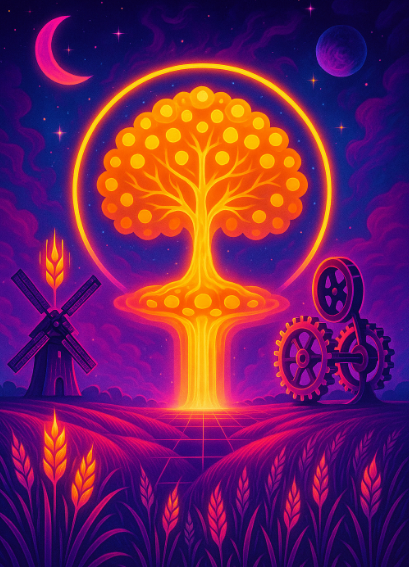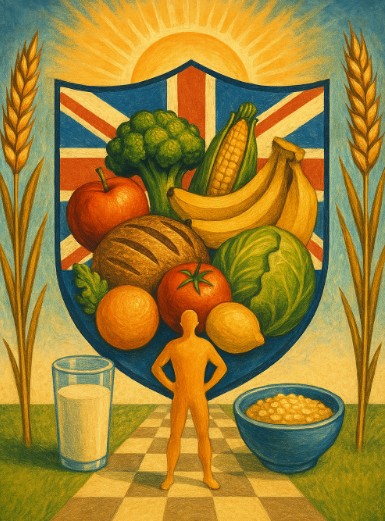Popular articles
The world is undergoing a profound paradigm shift, one that transcends political headlines and touches the foundational systems of modern life. Agriculture, economics, and global power structures are fracturing under pressures both old and new, revealing cracks that signal not just collapse, but transformation. This shift is less about ideological battles—those are mere symptoms—and more about the deeper forces reshaping how societies function and sustain themselves.
Agriculture, long a pillar of civilization, exemplifies the breakdown. Industrial farming, with its reliance on monocultures, chemical inputs, and centralized control, is faltering. Depleted soils, shrinking water tables, and climate volatility expose its limits. Rising costs and corporate consolidation have trapped farmers in a cycle of dependency, while global supply chains strain under disruptions. Yet, within this unraveling, alternatives emerge. Regenerative practices—small-scale, soil-focused, and localized—are gaining traction. Technology amplifies the change: robotics streamline planting and harvesting, while AI monitors ecosystems with precision. These efficiency multipliers suggest a future where food production could decentralize, if societies choose to steer it that way.
Economically, the shift is equally stark. The era of unipolar dominance, anchored by Western financial systems and the U.S. dollar, is giving way to a bipolar world. Power is splitting—China’s economic ascent and strategic investments challenge the old guard, while decentralized currencies like cryptocurrencies question the very nature of money. This isn’t a sudden collapse but a reorientation. Trade networks, debt structures, and resource control are realigning, driven by competition and a growing distrust in centralized authority. The how is in the numbers—trillions in infrastructure deals, billions in digital transactions—while the why lies in a global recalibration of who holds leverage and why it matters.
Technology itself is a catalyst, breaking old paradigms while forging new ones. AI and robotics aren’t mere tools; they’re multipliers of human capacity, reshaping labor, production, and resource use. Factories once staffed by hundreds now hum with automated precision. Farms leverage drones and data to outpace industrial sprawl. The potential is vast—efficiency gains could liberate resources and time—but the outcome hinges on application. Concentrated in elite hands, these technologies could deepen inequality; distributed widely, they could restructure societies toward resilience and autonomy. The shift is already underway, visible in adoption rates and innovation hubs worldwide.
This global transformation isn’t linear or uniform. Systems break unevenly—agriculture in one region, economics in another—yet the patterns converge. The why is rooted in exhaustion: decades of extractive growth have hit their limits. The how is in the response—technology, adaptation, and a reimagining of power. Politics, often mistaken for the driver, is a byproduct, a noisy echo of these deeper currents. Across continents, from rural fields to urban markets, the old order is shedding its skin. What emerges depends on collective choices: to cling to broken systems or to build anew with the tools at hand.
Subscribe to unlock premium content
Sed at tellus, pharetra lacus, aenean risus non nisl ultricies commodo diam aliquet arcu enim eu leo porttitor habitasse adipiscing porttitor varius ultricies facilisis viverra lacus neque.
The Great Wealth Generation Act 1.0

The Great Democracy Restoration Act

UK Nutrition Act 1.0

The Great Wealth Generation Act 1.0

The Great Democracy Restoration Act

The Great Wealth Generation Act 1.0







